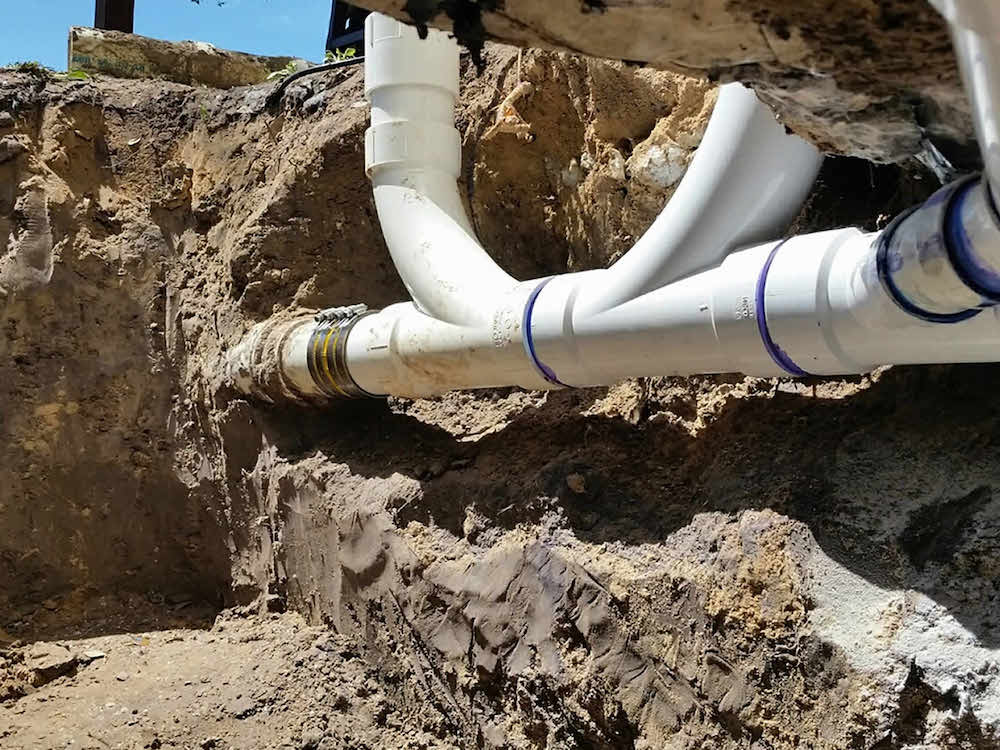Is DIY Drain Cleaning a Bad Idea?
We’ve all had it happen to us, you turn on the water in your sink, shower, or tub, and it begins to back up instead of flowing down the drain. After seeing countless ads for liquid drain cleaners, your first thought is to reach for that bottle of thick blue liquid containing frightening-sounding chemicals because it will do the job quickly, right?
What’s Wrong With Using Drain Cleaners?
Drain cleaners are chemical mixtures that are both corrosive and hazardous. These cleaners can cause extensive damage to pipes and are a health hazard. Take some time to read the label on the back of a cleaning product. The most commonly used liquid drain cleaners include some or all of the following:
- Aluminum
- Sodium chloride
- Sodium Hydroxide
- Sodium Nitrate
- Sodium hypochlorite
The ingredients cause a chemical reaction that produces bubbles, heat, and acidic properties—the acids melt proteins and fats to clear the pipe passage. The chemical processes caused by using liquid drain cleaners pose an obvious risk to your home, the environment, and family.
Liquid drain cleaners are designed to quickly break down proteins, fats, and debris that cause clogs. During this process, the liquid drain cleaner affects the clogged materials and kills bacteria in your drainage system. Many of the organic compounds that cause clogs are broken down by good bacteria. By killing the good bacteria, you open the door to an unsightly clog in the future.

Drain Cleaning Do-It-Yourself
If your drains are slow or you want to clean out your drains once a month to prevent gunk from building up along the pipe walls, two simple, low-cost solutions may work.
Vinegar and baking soda are excellent alternatives to chemical drain cleaners. Pour baking soda down the drain and half a cup of vinegar. Allow the sink to drain overnight. This should be done once a month. Hot water is another alternative. Pour a pot of hot water down the drain you want to clean. After that, flush out the clogs you just melted away with cool water.
Tools for Difficult Clogs
If you have a clogged drain and want to try to clear it yourself before calling in the professionals, put down the bottle of drain cleaner and replace it with a cup plunger or an auger.
Cup plungers are most effective on small clogs. Before attempting to plunge a sink drain, remove the stopper and ensure it is not the source of the clog. If cleaning does not restore flow, close the overflow hole to seal the drain and create the suction required to plunge. Place the plunger completely over the drain and run a small amount of water through it before plunging up and down. When the clog loosens, you should be able to feel it because the plunger will become easier to plunge.
An auger is a physical tool to clear clogs in pipes. There are various types, but in general, you feed the snake’s thick wire or cable through the drain pipe and turn a handle to keep the snake spinning inside the pipe. When the auger hooks onto the clog, pull it out and dispose of the mess.
Always keep the phone number of a reputable, experienced plumbing company on hand in case simple DIY solutions fail. Everest Plumbing has expert plumbing repair and drain cleaning in Greer, SC.